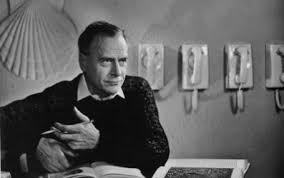Do people still consider Marshall McLuhan to be so many mumbles the way they did when he fell from grace, without cause, by 1980 or so? He wasn’t always right, but the theorist was no Nostradamus, whose writing needs to be spun like an angel on the head of a pin to appear to be right. McLuhan was more correct about the looming Information Age than anyone. From Paul Herbert’s Pacific-Standard piece, “The Medium Is the Message: 50 Years Later“:
“TWENTY YEARS AGO, IN the introduction to a re-print of Understanding Media, renowned editor Lewis H. Lapham wrote that much of what McLuhan had to say made a lot more sense in 1994 than it did in 1964, what with two terms of Reagan and the creation of MTV. Twenty years after that, the banality of McLuhan’s ideas have solidified their merit. When Yahoo! CEO Marissa Mayer, for example, compared the expansion of big data to the planet developing a central nervous system, that’s McLuhan. When Chief Justice John Roberts opined that an alien from Mars might mistake the smartphone as an integral feature of human anatomy, that’s McLuhan, too. In 2014, it’s hard to overstate McLuhan’s prescience.
‘People who don’t like McLuhan in the academic world are either lazy, stupid, jealous, or some combination,’ says Paul Levinson, a professor of communication and media studies at Fordham University, where McLuhan taught for a year in the late ’60s. ‘McLuhan wasn’t into commonsense, reasonable propositions. He liked looking at things in a poetic, metaphoric way.’
And it’s true: McLuhan had a penchant for speaking in riddles and rhymes that might baffle at first, but grow into epiphany if given the chance. His rhetorical style was hyperbole. He didn’t shy away from playing the holy fool, as Wired would later call him, and on a number of occasions claimed his mission was simply to probe the new terrain, not come back to camp with answers.”
__________________________
McLuhan with Tom Wolfe, one of his champions, in 1970:
Tags: Marshall McLuhan, Paul Herbert

